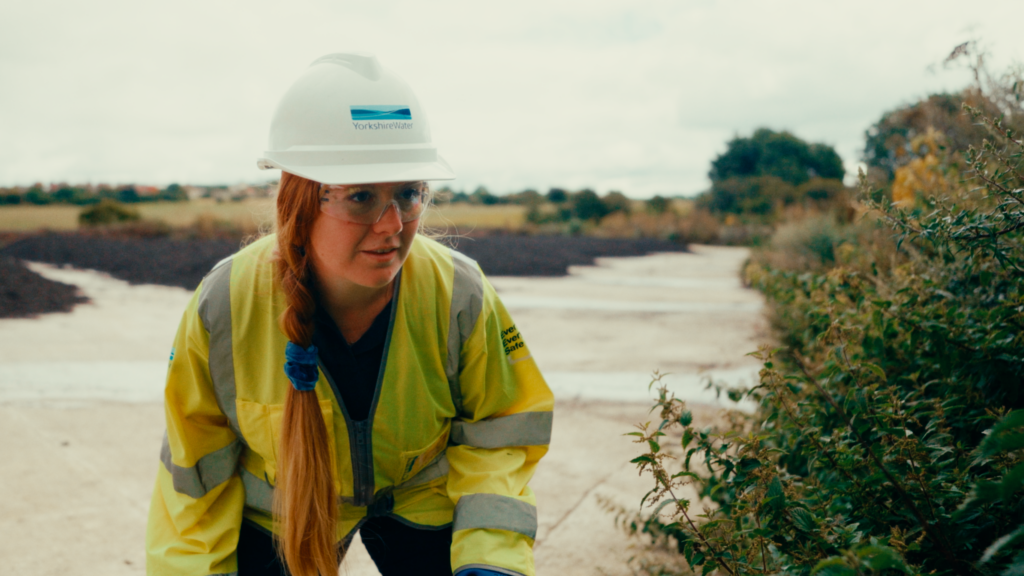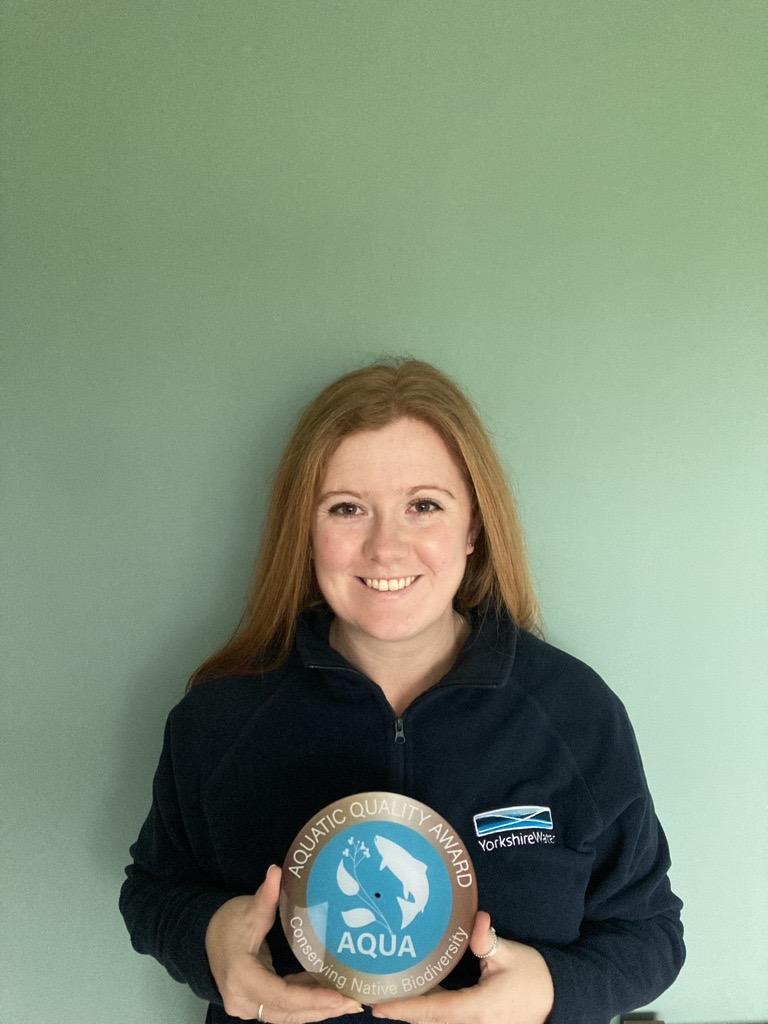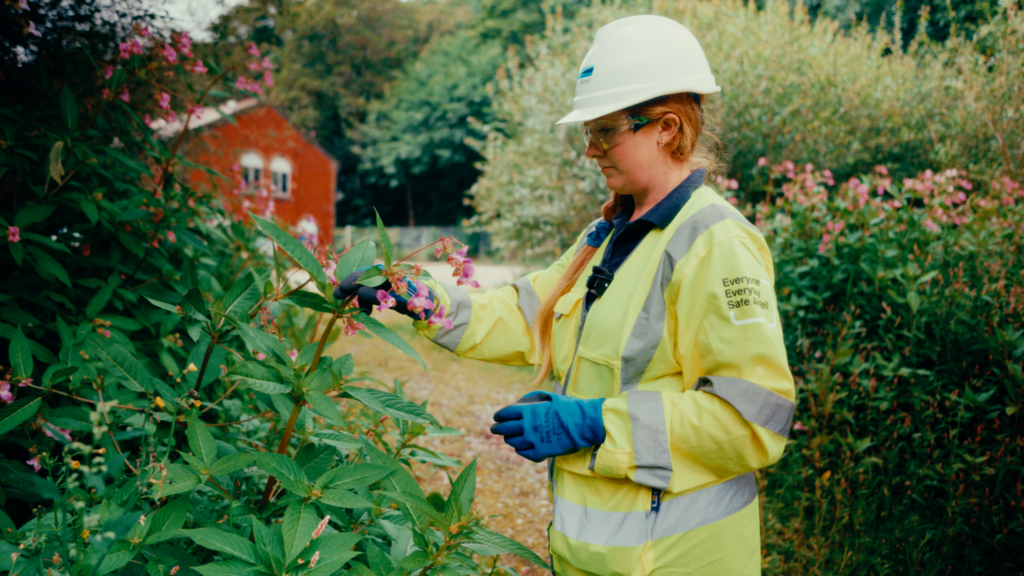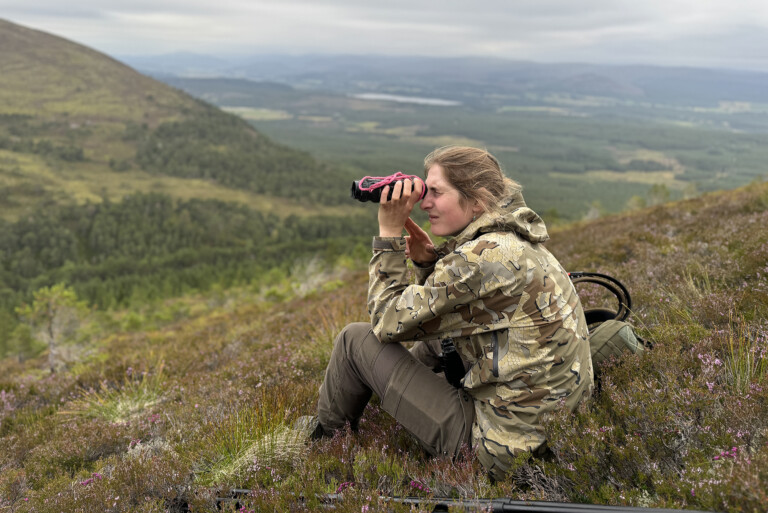Q&A with an Award-Winning Ecologist - Dr Steph Bradbeer

Dr Stephanie Bradbeer is Lead Ecologist (Invasive Species) at Yorkshire Water and is the joint winner of the recent 2024 CIEEM Promising Professional award. The Promising Professional award recognises an individual excelling at the early stages of their career.
Steph kindly took the time to answer some of our questions about her career so far. She is a fantastic example of someone to look up to and we hope you find some inspiration in her answers.
What is your job title and what do you do in your role? Why do you enjoy it?
In my role as ‘Lead Ecologist – Invasive Species & Biosecurity’ at Yorkshire Water I lead on a number of projects spanning the 3 pillars of invasive non-native species (INNS) management. These range from biosecurity implementation to prevent the spread of INNS, use of novel monitoring methods for early detection and potential eradication of INNS and finally reporting and long-term control of established populations of INNS. My day-to-day schedule can really vary quite a lot; from desk-based work and online meetings through to site visits for a number of reasons such as identifying INNS, implementing biosecurity and advising the business on INNS/biosecurity queries.
Working on INNS entails focusing on the species we do not want to be present in our environment. I often witness first-hand the negative impacts of INNS which drives me in preventing further impact on invaded environments and preventing invasions at other locations. I enjoy being in a role where there is the considerable opportunity to tackle INNS and implement biosecurity which has the capacity to protect every habitat type. I particularly enjoy working at the regional and national scale to tackle INNS and working with others including catchment partners, water industry colleagues, academics, local action groups and other key stakeholders.

Can you walk us through your career trajectory…how did you get to where you are today?
I have been at Yorkshire Water for 3 years now and in that time have had 3 roles: Ecological Advisor, Senior Ecologist and my current role as a Lead Ecologist. Prior to that I was in academia for a decade. My PhD was at the University of Leeds focusing on biosecurity of freshwater INNS, which was case partnered with the Environment Agency and South West Water. My research focused on assessing and informing biosecurity protocols for real-world scenarios to reduce the spread of INNS. Furthermore, assessing and understanding motivations, awareness and barriers to biosecurity was another key aspect of my research.
Going back in time further, I completed my Masters by Research at the University of Bristol assessing the impact of invasive tilapia fish in Tanzania, focusing on the risk of hybridisation with native endangered fish species and morphometric differences to inform ID in the field. This work cemented my interest in INNS, and more specifically my interest in the real-world management of INNS – effectively once we know a species is invasive, what do we then need to do about it?
Finally to round off my academic story, my undergraduate degree was completed at the University of Exeter, with a year study abroad at Montana State University in the USA. This is where my interest in INNS stems from, including my first significant INNS encounter whilst on a 2nd-year field course in the Bahamas. Witnessing the catastrophic ecological and societal impact lionfish were having and the range of actions needed to tackle this was most intriguing and has led to me becoming an INNS ecologist.
What’s your favourite thing about working in the sector/having a green job for nature?
I’d say I have two favourite things about working in the ecology / environmental sector. First is the variety of work, especially as an INNS ecologist. As I work across environment type, taxa and pathways of INNS spread, within a day I could be conducting INNS surveys on a riverbank, or inputting into catchment scale control coordination plans, or advising on complex biosecurity requirements of bioresource or raw water movement. The range of ways INNS can be present and impact the environment reflects the range of ways I can be working.
Secondly, are the people I have the pleasure of working with and seeing their passion for the environment. Environmental work can sometimes be difficult, especially considering the challenges our environment faces and I take inspiration from several people I have worked with and how they have dedicated their professional (and often private) lives to improve the environment.

What advice would you give to someone coming into the profession?
My advice to someone coming into the profession is to ensure you are aware of and understand the range of sectors and companies that an ecologist/ environmental manager can work in. I have had others surprised before when I have said I am an ecologist working for a water company, just because they were unaware those roles existed. Ranging from government and regulatory bodies, consultancy, water industry, charity sector, and many others, there are a lot of different roles out there with different opportunities.
Furthermore, also understand that whilst a lot of roles are titled relatively generically such as ‘ecologist’ there are a lot of different specialisations and you therefore can pursue something you have a particular passion for – like me with INNS. My final comment would be the range of roles available is reflective of the range of ways a role can fit into someone’s life – whilst it’s important to find a role you are passionate about it, it must also fit with other priorities in your life. Recognising those priorities alongside what you want from a role is vital when coming into any profession.
Latest Blog Posts
An Information Session for Parents (25 June)

Sustainability, Science, and Social Media: Q&A With Laura Young

Midges, Grallochs and Sunrises: My Year as a Trainee Deer Stalker

